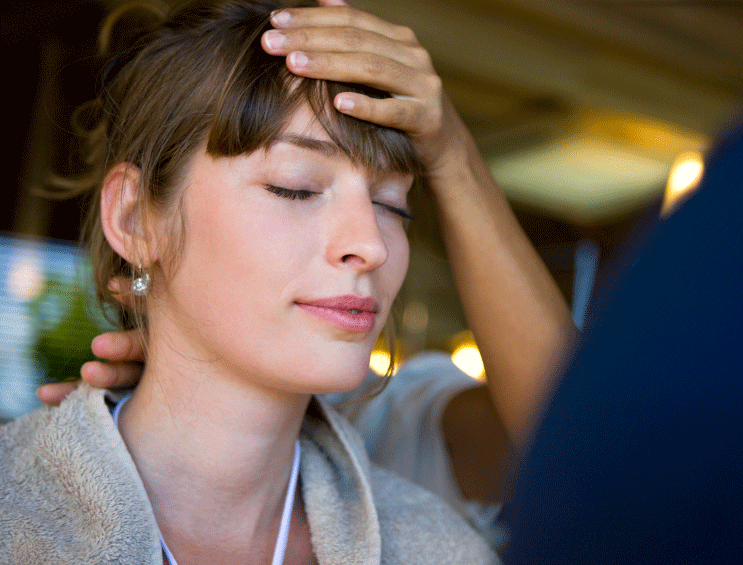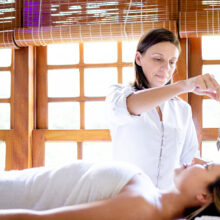Spa 101: Managing Your Stress and the Benefits of Massage
- Published: Tuesday, December 7th 2010
- in Mindset
 Whether planning get-togethers or lugging around gifts, the holiday season can add stress to your already-busy life. This stress can translate in different ways for different people, from aches and pains, to muscle tension, to both physical and emotional exhaustion.
Whether planning get-togethers or lugging around gifts, the holiday season can add stress to your already-busy life. This stress can translate in different ways for different people, from aches and pains, to muscle tension, to both physical and emotional exhaustion.
Massage, which isn’t just a luxurious treat to pamper yourself or loved ones with once in a while, can actually provide relief as well as, if not better than, medication for some ailments. Numerous studies conducted in the United States, Europe, and Asia have documented that massage offers a range of physical, mental, and emotional benefits. In fact, SpaFinder’s own Susie Ellis named “The Science of Spa,” where questions about and interest in the effectiveness of spa therapies will be asked, as number 6 in SpaFinder’s Top 10 Global Spa Trends for 2011.
With up to 90% of visits to primary care physicians being for stress-related complaints such as headaches and backaches, neck pain, eyestrain, anxiety, depression, high blood pressure, heart disease, and physical and emotional exhaustion, massage therapy can be a great alternative to naturally address these issues. In fact, more than half of M.D.s recommend massage therapy for backaches, according to Self.com. Because massage activates your body’s parasympathetic nervous system, it counteracts your body’s negative response to stress, relaxing muscle tension and allowing your heart rate, blood pressure, and circulation to return to normal. At the same time, massage can increase awareness of your body and where you hold tension.
Other benefits of massage therapy include:
- Decrease in chronic pain: Massage activates nerve receptor signals to temporarily block chronic pain signals from reaching the brain. It also releases endorphins (the body’s natural painkiller) into the brain and nervous system to reduce pain and discomfort without the use of medication. For lower-back pain, try shiatsu, an Asian form of massage using trigger points to ease tension and release endorphins.
- Strengthens the immune system: Massage increases circulation in your lymphatic system, which plays a major role in warding off infection and healing injuries.
- Improved nerve function: Massage relaxes contracted muscles, which can press or pinch your nerves, causing tingling, numbness, or pain. For athletes or those who just love a good workout, try a Swedish massage to lessen the muscle pain that comes with exercise.
- Better sleep: Since massage relaxes tense muscles and calms the nervous system, causing your body’s rhythm to slow down, blood pressure is lowered, your heart rate settles and your breathing becomes deeper and more rhythmic, setting you up for a great night’s sleep. We suggest trying a myofascial massage – forty-five minutes twice a week may help alleviate symptoms of restless leg syndrome, according to the Journal of Bodywork and Movement Therapies. Swedish massage can also help prevent insomnia.
- Improved skin tone: With so many factors taking a toll on our skin, including the sun, pollution, poor diet, and just the natural aging process, massage therapy can increase the uptake of vital skin-repairing nutrients and speed the removal of toxins. Improved circulation helps moisturize your skin, improving skin texture, while relieving dryness and itching.
So, what are you waiting for? Stressed or not, everyone can improve their health while enjoying a little R&R, so give the gift of wellness(to yourself and to loved ones) and book an appointment today!


